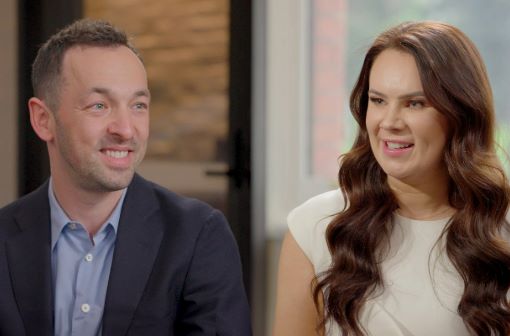“The terminology that the NDIS has adopted is to help people to live ‘an ordinary life’. An ordinary life is one that is typical or usual for everyone in modern day Australia.”—Jacob Edwards, SDA Fund Manager, Australian Unity.
Key points
- Australian Unity Wellbeing Index research shows that there is a connection between our homes and our wellbeing.
- The majority of people living with a disability have traditionally lacked adequate housing, especially if they are low-income earners or unemployed. Specialist Disability Accommodation (SDA) aims to change that by providing people with a disability with an independent housing solution.
- SDA can be transformative—not just on a personal level, but also on social and economic levels, and on our healthcare system.
Our homes mean significantly more to us than just a mere roof over our heads. Where we live can offer a deep form of personal security, pride and daily comfort.
The Australian Unity Wellbeing Index, created in partnership with Deakin University, shows that people who’ve managed to pay off their homes are more satisfied with their wellbeing than those living with mortgages or in rental accommodation. Other studies also point to the negative impact our homes can have on our lives, with poor-quality housing linked to a range of mental health issues including anxiety and depression.
The connection between our living arrangements and wellbeing highlights some cause for concern—especially given that Australia’s spiralling housing prices are making affordable living a growing challenge for many.
It’s an even graver problem for the almost one in five Australians living with a disability. That’s because they’re more likely to survive on a low income and many people with disabilities have specialised housing requirements based on their specific needs.

The need for appropriate housing
“There is in the order of 500,000 people in Australia who receive some form of funding from the National Disability Insurance Scheme,” says Jacob Edwards, Fund Manager of Australian Unity’s Specialist Disability Accommodation Fund. “Of that 500,000, the National Disability Insurance Agency (NDIA) has identified that there are some 28,000 people, those with the most profound impairments, that require additional support in the form of housing.”
“Many of this cohort have been residing in inappropriate housing settings. This may include people living with aging parents, young people living in nursing homes, or people with no choice but to live in institutions or large group homes.”
“A lot of people with disabilities have been displaced in the community because there's been a lack of appropriate housing options,” agrees Justin Nix, CEO of Guardian Living Australia, an Australian Unity partner organisation that provides accessible housing options to people living with a disability.
“Specialist Disability Accommodation (SDA) is really vital. I think of SDA as affordable housing that provides that foundation for increased independence, community integration and social connection.”
What Specialist Disability Accommodation looks like
What SDA translates to is much more than the wheelchair ramps and additional handrails of old. Today, the modern interpretation is a well-considered home that accommodates the needs of people with disabilities by including additional features that are cleverly integrated and concealed in the design.
“The ultimate test for us is entering an SDA dwelling and thinking, ‘Well, I'd really like to live here myself’,” says Justin.
The exciting thing about SDA is that assistive technology is now transforming what’s possible. Retinol-recognition tech, for example, allows people without movement in their arms to control air-conditioning and lighting, or let in a visitor who buzzes at their door. “This technology can enable the tenant to call on support, for example, in the middle of the night, rather than having someone with them 24 hours a day,” adds Justin.

The transformative impact
Having worked in this sector for 30 years, Justin has seen firsthand the profound difference SDA can make to an individual’s confidence and wellbeing.
“In 2020, I had to go and visit one of Australian Unity’s tenants at an SDA project that is a clustered model of apartments,” recalls Justin. “When I walked in the apartment, what struck me was how beautifully decorated the apartment was for Christmas and how there were presents under the Christmas tree.
“This particular gentleman had come out of a residential nursing home, and he said to me: ‘This is the first time in 20 years that I've actually decorated my own place for Christmas. Those presents under the tree are for my friends and family—I was able to go to the local shopping centre and buy them all myself’. He'd never had the chance to do any of that before.”
It’s just one example of how life-changing SDA can be for people, giving them the opportunity simply to do the everyday things that most of us take for granted every single day.
“The terminology that the NDIS has adopted is to help people to live ‘an ordinary life’,” says Jacob. “An ordinary life is one that is typical or usual for everyone in modern day Australia. It’s a life where you can pursue your potential and participate in society on an equal basis with others.
“Now you and I look at that and think: ‘That's not very inspirational. We're not going to make a fridge magnet out of that’. But at the end of the day, that's what you and I do: we're just ordinary. But a lot of the NDIS participants we’re talking about are very atypical, and having that opportunity to lead an ordinary life is all they ask.”
The social effect
It all makes for a compelling argument about why Specialist Disability Accommodation is such a fundamental human rights issue on a personal level. But if you zoom out to consider the bigger picture, the benefits are even more profound.
“When we talk about social impact, it's not just social impact to those individuals living in SDA,” says Justin. “It's broader than that—it's an impact that translates economically into the community.”
Empowering people to live more independently is simply far more sustainable in the long term, he explains. Housing that enables someone to look after themselves with minimal assistance reduces the burden on the health system to deliver that same level of support.
“We know that people, once they move into SDA are actually healthier—physically and psychologically—so it is a reduced cost to the healthcare system,” says Justin. “Not only does it allow people to live more independently, but it also provides a sound economic argument for greater investment into SDA. Because the more we invest in good housing, the less it's going to cost the government to support those people.”

Investing in SDA
Australian Unity’s Specialist Disability Accommodation Fund invests in high-quality Specialist Disability Accommodation in attractive locations to support Australians living with a disability.
The way it works is that if, for example, an off-the-plan development was gearing up to build 200 apartments, the fund might approach the developer to include a number of specially designed SDA apartments. These SDA apartments would be fitted out with necessary assistive technology, accessible cabinetry and appliances to enable a person with a disability to build skills and live more independently.
“While it’s an investment fund, our investors are investing funds to receive a return as well as achieve a positive social outcome,” says Jacob. “The concept that I find very easy to put to investors is that the best possible SDA outcome for a person is often entirely aligned to the best possible return outcome.”
Disclaimer: Information provided in this article is of a general nature. Australian Unity accepts no responsibility for the accuracy of any of the opinions, advice, representations or information contained in this publication. Readers should rely on their own advice and enquiries in making decisions affecting their own health, wellbeing or interest.


